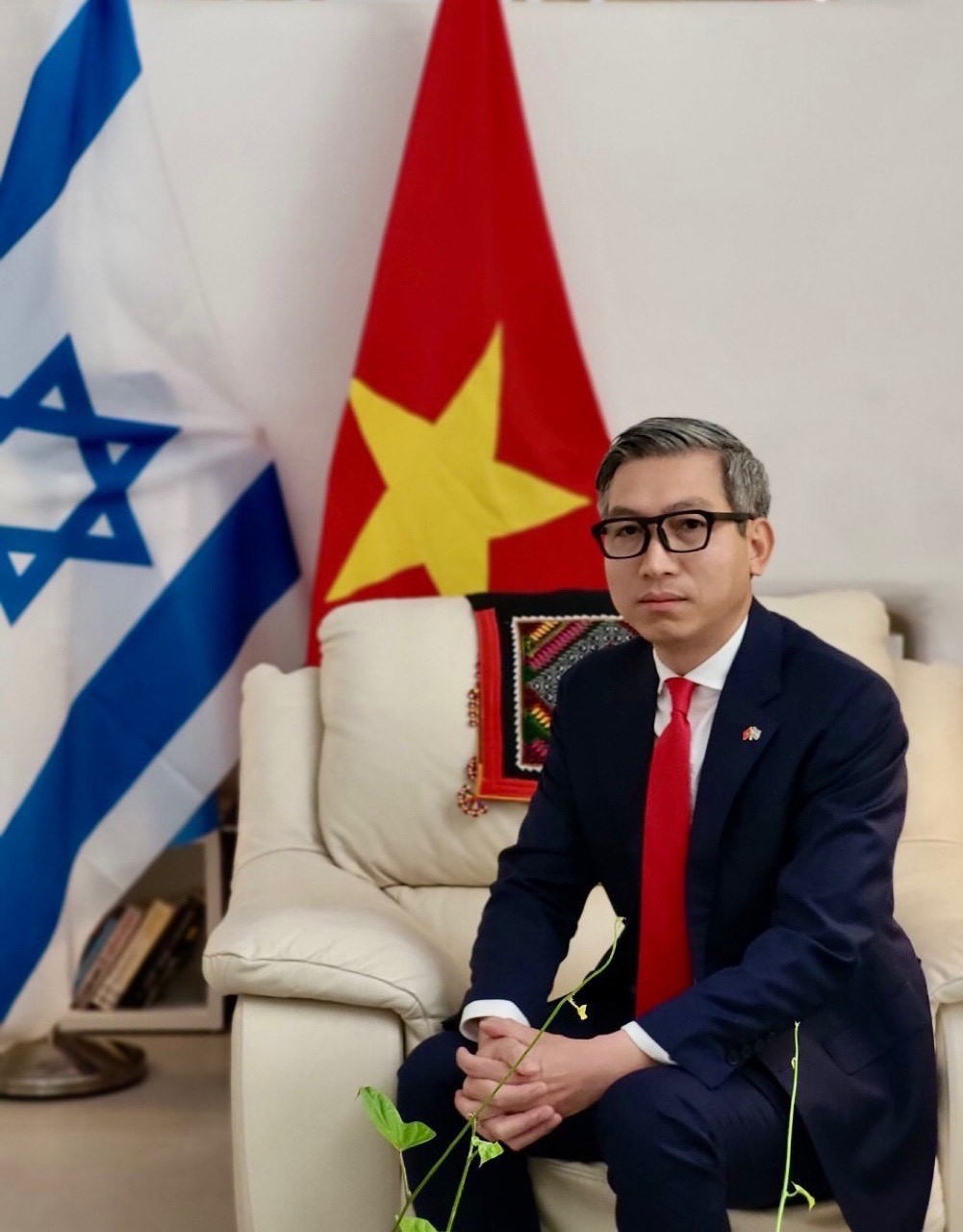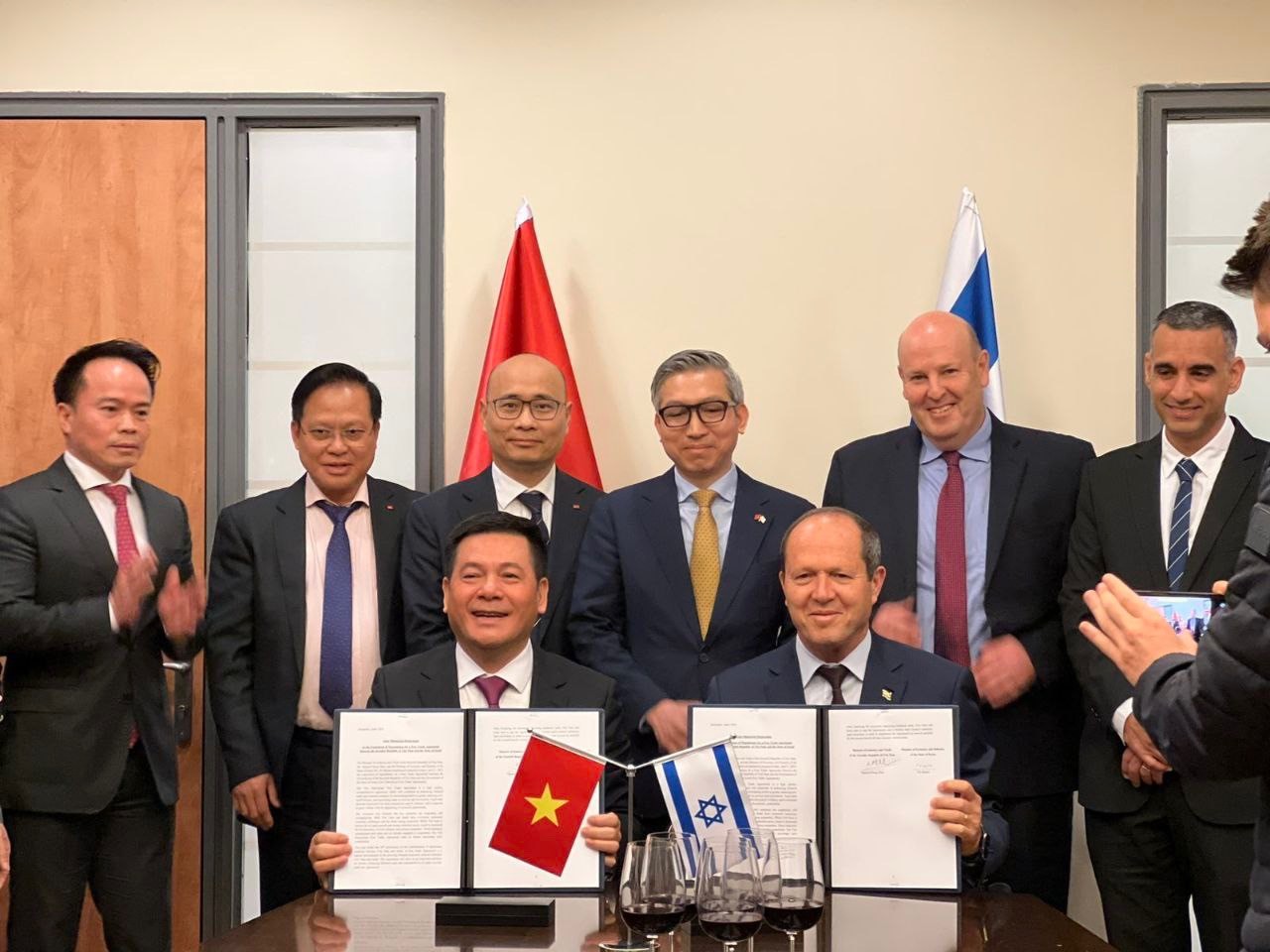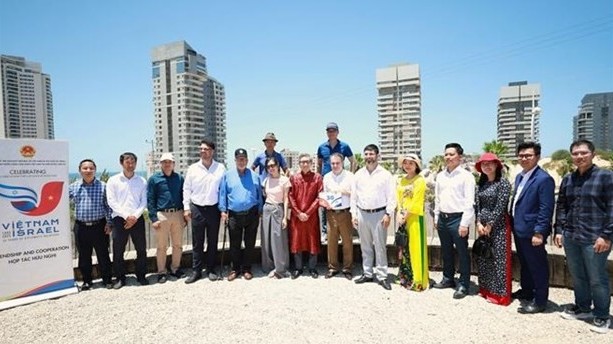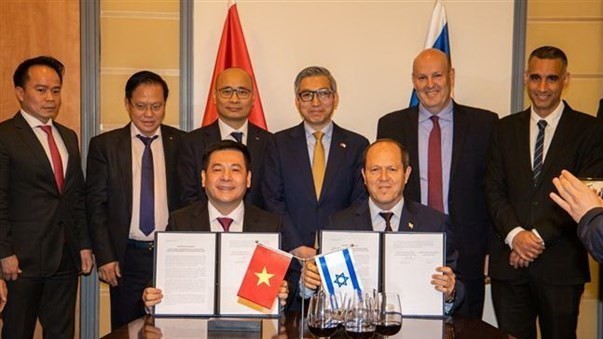
VIFTA: The 12-year journey on reaching Vietnam-Israel Free Trade Agreement
Latest
Vietnamese Ambassador to Israel Ly Duc Trung enthusiastically shared with the World and Vietnam that the Vietnam-Israel Free Trade Agreement reached the “finish line”, just as the two countries celebrated 30 years of diplomatic relations.
 |
| Vietnamese Ambassador to Israel Ly Duc Trung. |
After 7 years and 12 negotiation sessions, on April 2 in Tel Aviv, Vietnam and Israel issued a statement on the conclusion of FTA negotiations between the two countries. What is the significance of this FTA?
After many years and prolonged negotiations, the conclusion of VIFTA negotiations is the result of the tireless efforts of experts of the Inter-Agency Steering Committee for International Economic Integration, one of the important pillars of the National Steering Committee for Economic Integration.
With the core being officials from the Ministry of Industry and Trade, coordinating with experts from finance, investment, diplomacy, justice, and other sectors, Vietnam has gradually participated and proactively negotiated a total of 17 FTAs, with 13 FTAs already implemented. The FTA between Vietnam and Israel, which has just ended negotiations and is preparing to be signed, 2 other FTAs are currently being negotiated, and 1 FTA has just started negotiations.
From the start of Vietnam’s FTA integration in 1996, experts have made significant efforts, from bringing Vietnam into existing frameworks to actively initiating negotiations and creating frameworks in economic and trade relations between Vietnam and partners based on the most appropriate content balance for national interests.
The achievements of three decades of international economic integration reflect the consistent nature of the Party's foreign policy. Especially the Party Congress’ resolutions on economic diplomacy, with an important focus being the issuance of of the Central Party Secretariat on strengthening economic diplomacy in the period of accelerating national industrialization and modernization, , which has been developed a step further through Resolution No. 22-NQ/TW of the Politburo in 2013 on international integration with the spirit of "economic integration is the focus, integration in other areas must facilitate economic integration and contribute positively to economic development."
VIFTA negotiations began in 2015, but policy reference documents had been drafted since 2011. Therefore, to bring VIFTA to fruition, the entire political system had been involved at an early stage. The negotiation process always reflects the unified and comprehensive leadership of the Party in foreign affairs in service of economic development.
Therefore, we have spent 12 years of effort to "sow the seeds of free trade" on Viet Namese-Israeli land. In 2023, Vietnam and Israel celebrate 30 years of diplomatic relations and the first year of implementing Directive 15-CT/TW dated August 10, 2022 by the Central Party Secretariat on economic diplomacy in service of the country's development until 2030.
VIFTA is a "sweet fruit" that Vietnam deserves to enjoy, because we have persistently negotiated and patiently waited for the end of negotiations for so long.
Israel is one of the most important partner of Vietnam in terms of trade, investment, and labor in the West Asia region. It is also the 3rd largest export market and the 5th largest trading partner of Vietnam in West Asia. Israel is also considered a large and potential market in this region. In your opinion, what are the opportunities for Vietnamese goods after the Vietnam-Israel FTA is signed?
The VIFTA is a traditional free trade agreement. Accordingly, Vietnam has achieved a very encouraging agreement on commodity trade. Specifically, according to its commitments, Israel will abolish tariffs on more than 90% of tariff lines, including removing about 65% of committed tariff lines immediately after the agreement takes effect and about 25% of other tariff lines according to the roadmap from 3 to 10 years.
Israel has committed to reserve tariff quotas with 0% in-quota tax rates on a number of items including eggs, meat, potatoes, carrots, mushrooms, honey, tuna and others.
It can be seen that domestic businesses need to prepare a certain amount of goods, in accordance with the tariff quotas that Israel has committed to, as well as other non-tariff quota items to penetrate the Israeli market as soon as the VIFTA comes into effect, possibly in early 2024, the target set by our government.
 |
| Vietnam and Israel announce the conclusion of the negotiations for their free trade agreement, which lasted for seven years with 12 rounds. (Photo: Ministry of Industry and Trade) |
What is your expectation on trade and investment cooperation between the two countries after the Vietnam-Israel FTA is signed? What are the areas in which both sides will promote and have more opportunities for deeper cooperation in the future?
Currently, the bilateral trade turnover between Vietnam and Israel is at about 2.2 billion USD. Of which, Viet Nam exports about nearly 800 million USD and imports more than 1.4 billion USD.
With Israel’s market scale, consumption habits, and product quality requirements, as well as the increasingly strong, systematic, and professional capacity of domestic businesses in Vietnam, the bilateral trade turnover between the two countries will soon reach USD 3-4 billion in the near future. Both sides will open up their markets for each other's goods and services, and increase their bilateral trade rapidly, but also in a more balanced manner, reducing the trade deficit of Vietnam.
It is worth noting that Vietnam will open up to Israeli retail businesses, leasing of machinery without operator, advertising services, and other fields, including the public shopping market when conditions are met.
Currently, some Vietnamese businesses have proactively researched and invested in areas where Israel has strengths, such as batteries for electric cars, medical-pharmaceuticals technology, new materials, and innovative startup. In Israel, there are also businesses investing in processing and manufacturing industries, healthcare and social support services, agriculture, forestry, and fisheries.
For example, Delta Galil invested in building a factory producing yarns, weaving fabrics, dyeing technology, knitted fabrics, crocheted fabrics, other non-woven fabrics, and other products that Israel has strengths in. The company is one of the world’s leading manufacturer in input materials for the garment industry that can meet the on-site demand of Vietnamese businesses.
In the future, both sides can enhance cooperation to optimize areas such as production of goods and services, while promoting cooperation in digital technology and high-tech solutions in agriculture, such as seeds, water treatment, fertilizers, and new materials. Vietnam will actively encourage Israeli businesses to invest in high-tech manufacturing, smart agriculture, new materials industry, information technology, green growth, circular economy, climate change response, as well as developing high-tech industrial infrastructure.
Based on the complementary economic structure of the two countries, goods that do not directly compete but complement each other will help both sides to promote export of their respective strengths to each other's markets.
As the flow of goods increases rapidly, consumers in both countries will know more about each other's goods, and businesses in both countries will increase investment in areas of strength, demand, and ability to receive, which will increase people-to-people exchanges.
From there, it will contribute to the growth of tourism, the transfer of labor between the two countries, as well as goods and passenger transportation by air, which will become a catalyst for direct flights between Israel and Vietnam to be officially implemented in the near future.





















